Enron CFO says banks were part of crooked schemes
By Laurel Brubaker Calkins and Thom Weidlich
Bloomberg News Service
Tuesday, September 26, 2006
Andrew Fastow, Enron Corp.'s former finance chief and architect of the fraud that led to the energy trader's bankruptcy, said company banks, including Merrill Lynch & Co. and Credit Suisse, were in on his scheme.
"In many instances, the financial transactions in which I engaged related to Enron were done with the knowledge of senior management, some of Enron's banks, and others, and were done primarily to meet Enron's financial reporting and credit-rating targets," Fastow said in a declaration filed in an investor securities-fraud case in Houston today.
Fastow, 44, singled out Merrill Lynch, Credit Suisse, the Royal Bank of Scotland Group, and Barclays Plc. in his declaration, which investors cited in their suit to help recover an estimated $30 billion in stock and bond losses. Fastow, scheduled to be sentenced today for the fraud, has previously refused to testify, citing his right not to incriminate himself.
Fastow created off-the-books partnerships used to hide debt and inflate income, he admitted when he pleaded guilty in 2004 to two crimes related to the Enron fraud. After disclosing the misstatement of its income in 2001, the Houston-based company filed the second-largest bankruptcy in U.S. history after WorldCom Inc.'s. More than 5,000 people lost their Enron jobs.
Fastow testified against Enron's former chief executive officers Kenneth Lay and Jeffrey Skilling, who were convicted of the fraud in May. Lay died in July. Skilling, 52, is appealing.
Merrill Lynch spokesman Mark Herr and Carolyn McAdam, a spokeswoman based in Edinburgh for Royal Bank of Scotland, said they had no immediate comment. Victoria Harmon, a spokeswoman for Credit Suisse in New York, declined to comment.
Peter Truell, a spokesman for Barclays Capital in New York, declined to comment. Barclays was dismissed from the suit in July. Investors have asked the judge to reinstate the bank in time for the case's April 2007 trial date.
The banks "worked to solve certain of our financial problems," Fastow said in his statement. "We told certain banks of our financial objectives and they, in many instances, created solutions utilizing complex financial structures." Some of the transactions made it "difficult for an investor to understand Enron's true financial condition" and were "deceptive."
The banks presented structured-finance transactions "in response to the problems we described to them," Fastow said in the statement. "In many instances, the banks primarily devised the financial structures, which contributed to Enron achieving its financial reporting objectives."
Fastow described leaseback transactions undertaken with Barclays in which the bank was assured that it wouldn't lose its equity in the deals. Fastow claimed he had seen bank documents that described the transaction as a "trust me" deal and that Barclays "agreed to go forward on the basis of explicit verbal support from the company's treasurer."
Fastow said he saw bank documents stating "Barclays would rely on assurances from Enron's treasurer that Enron would make up any shortfall in the equity return."
In December 1999, to meet financial reporting goals, Enron arranged the temporary sale of Nigerian energy barges to Merrill Lynch, guaranteeing to repurchase them in six months, Fastow said.
"Based upon my discussions with senior Merrill executives, I believe that Merrill understood the impact this transaction would have on Enron's financial statements, that the guarantee provided by me would likely change the accounting treatment of the transaction, and that the only reason for the transaction was to receive the desired accounting and financial-reporting treatment," Fastow said in his declaration.
In June 2000 an Enron off-books entity created by Fastow bought the barges.
* * *
Bloomberg News Service
Tuesday, September 26, 2006
Andrew Fastow, Enron Corp.'s former finance chief and architect of the fraud that led to the energy trader's bankruptcy, said company banks, including Merrill Lynch & Co. and Credit Suisse, were in on his scheme.
"In many instances, the financial transactions in which I engaged related to Enron were done with the knowledge of senior management, some of Enron's banks, and others, and were done primarily to meet Enron's financial reporting and credit-rating targets," Fastow said in a declaration filed in an investor securities-fraud case in Houston today.
Fastow, 44, singled out Merrill Lynch, Credit Suisse, the Royal Bank of Scotland Group, and Barclays Plc. in his declaration, which investors cited in their suit to help recover an estimated $30 billion in stock and bond losses. Fastow, scheduled to be sentenced today for the fraud, has previously refused to testify, citing his right not to incriminate himself.
Fastow created off-the-books partnerships used to hide debt and inflate income, he admitted when he pleaded guilty in 2004 to two crimes related to the Enron fraud. After disclosing the misstatement of its income in 2001, the Houston-based company filed the second-largest bankruptcy in U.S. history after WorldCom Inc.'s. More than 5,000 people lost their Enron jobs.
Fastow testified against Enron's former chief executive officers Kenneth Lay and Jeffrey Skilling, who were convicted of the fraud in May. Lay died in July. Skilling, 52, is appealing.
Merrill Lynch spokesman Mark Herr and Carolyn McAdam, a spokeswoman based in Edinburgh for Royal Bank of Scotland, said they had no immediate comment. Victoria Harmon, a spokeswoman for Credit Suisse in New York, declined to comment.
Peter Truell, a spokesman for Barclays Capital in New York, declined to comment. Barclays was dismissed from the suit in July. Investors have asked the judge to reinstate the bank in time for the case's April 2007 trial date.
The banks "worked to solve certain of our financial problems," Fastow said in his statement. "We told certain banks of our financial objectives and they, in many instances, created solutions utilizing complex financial structures." Some of the transactions made it "difficult for an investor to understand Enron's true financial condition" and were "deceptive."
The banks presented structured-finance transactions "in response to the problems we described to them," Fastow said in the statement. "In many instances, the banks primarily devised the financial structures, which contributed to Enron achieving its financial reporting objectives."
Fastow described leaseback transactions undertaken with Barclays in which the bank was assured that it wouldn't lose its equity in the deals. Fastow claimed he had seen bank documents that described the transaction as a "trust me" deal and that Barclays "agreed to go forward on the basis of explicit verbal support from the company's treasurer."
Fastow said he saw bank documents stating "Barclays would rely on assurances from Enron's treasurer that Enron would make up any shortfall in the equity return."
In December 1999, to meet financial reporting goals, Enron arranged the temporary sale of Nigerian energy barges to Merrill Lynch, guaranteeing to repurchase them in six months, Fastow said.
"Based upon my discussions with senior Merrill executives, I believe that Merrill understood the impact this transaction would have on Enron's financial statements, that the guarantee provided by me would likely change the accounting treatment of the transaction, and that the only reason for the transaction was to receive the desired accounting and financial-reporting treatment," Fastow said in his declaration.
In June 2000 an Enron off-books entity created by Fastow bought the barges.
* * *















![[Most Recent Quotes from www.kitco.com] [Most Recent Quotes from www.kitco.com]](http://www.kitco.com/images/live/t24_au_en_usoz_6.gif)
![[Most Recent Quotes from www.kitco.com] [Most Recent Quotes from www.kitco.com]](http://www.kitco.com/images/live/au_go_0030_ny.gif)
![[Most Recent Quotes from www.kitco.com] [Most Recent Quotes from www.kitco.com]](http://www.kitco.com/images/live/au_go_0365_ny.gif)
![[Most Recent Quotes from www.kitco.com] [Most Recent Quotes from www.kitco.com]](http://kitconet.com/charts/metals/silver/t24_ag_en_usoz_4.gif)




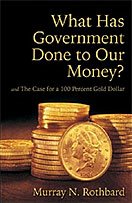

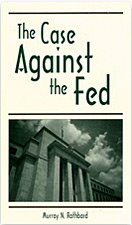
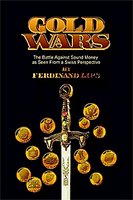
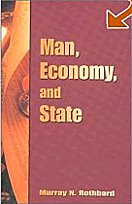

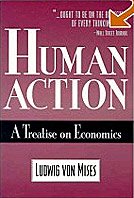
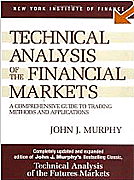
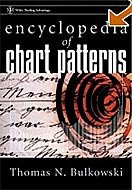




0 ΣΧΟΛΙΑ (COMMENTS):
Post a Comment
<< Home